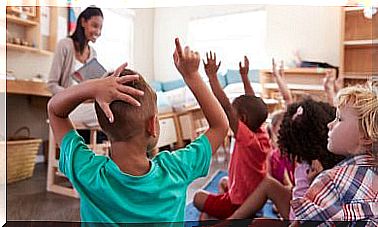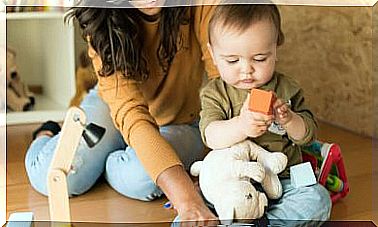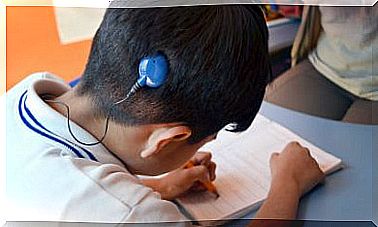5 Attitudes That Encourage Irresponsibility In Children

Educating responsible children and young people is one of the main goals of every father and mother. Understanding the value of meeting your obligations will bring you great benefits in the future. However, sometimes adults maintain certain attitudes that unintentionally encourage irresponsibility in their children.
For minors to be responsible, we must provide them with the appropriate conditions. That is, there must be clear rules and a space in which they can decide, exercise responsibly. Many times we fail at some point in this process, making it difficult to acquire this important value. Thus, pay attention to the following attitudes and try to correct them if you see yourself reflected in any of them.
Parental attitudes that encourage irresponsibility in children

We do not allow them to make decisions
To instill responsibility in our children, it is imperative that we provide them with enough space to make certain decisions. A young man cannot exercise responsibility if he is not allowed to.
For example, if every day we insist and chase our son to do his homework and stay by his side all the time, we are not giving him space. You can be responsible when we allow you to take care of your tasks and trust that you will complete them on time without being on top of you.
We don’t explain the rules to them
Many times, what we consider irresponsibility arises from a lack of clarity in the rules. It is important that the rules are clear so that they can follow them and we can assess their performance.
Let’s imagine our teenage son is on one of his first outings with friends and we ask him to come home soon. This very little specific guideline is not adequate, since it is not clear or easy to follow, since “soon” is a relative and subjective term. If, instead, we tell him to come back before 10, he will know what to do and we can easily measure whether he has been responsible.
Not allowing them to experience the consequences creates irresponsibility
As parents, one of our biggest failures is not allowing our children to experience the natural consequences of their actions. In an attempt to avoid problems and suffering, we end up depriving them of the opportunity to learn valuable lessons.
Thus, if the minor forgets to put a book in the school backpack, it will be appropriate for him to experience the consequences of his forgetfulness. If mom or dad rush home to pick up the book and take it to school, they are encouraging irresponsibility.

We do not apply consequences consistently
In relation to the above, when establishing discipline, we must be careful to apply the consequences consistently and consistently. That is, these must be related to the failure committed and must appear whenever the rule is breached.
The irresponsibility of children is often motivated by the fact that the consequence does not always appear. Thus, if we establish that missing your arrival time results in a weekend without leaving, we cannot make frequent exceptions or change your mind at the last minute.
We do not control our emotional state
Finally, it is important that parents are able to maintain discipline without falling into emotional control. In other words, rules and definite consequences are established and these are applied without changing the way in which we treat the minor.
If the room has not been cleaned or has not finished the homework, this will have some effects that must be observed, but it is not necessary or positive that the parents yell, accuse or get angry with the child. It is the consequence that teaches, so creating a negative emotional climate is unnecessary and harmful.
Irresponsibility, a task of both
Ultimately, if you feel that your child is behaving irresponsibly, try to address the issue jointly. Before blaming him, try to see where you could improve your educational work. Maybe the rules are not clear enough or maybe you are not giving him the space and confidence to show you that he can be responsible.
Remember to always be patient, stay calm, and let the consequences teach you. This is the best way for young people to experience responsibility. Working together, you will be able to establish more mature and autonomous behaviors.










